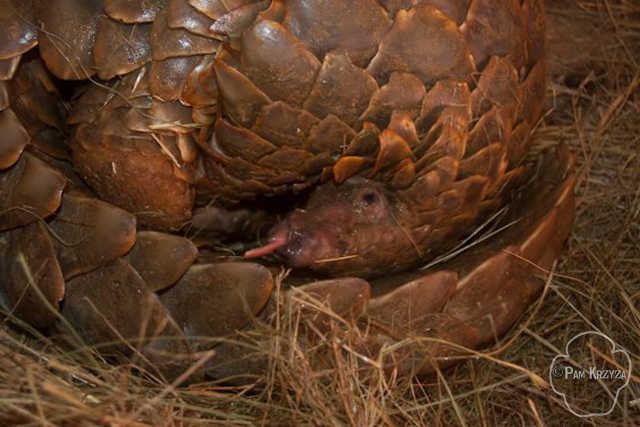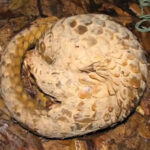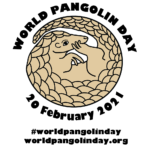Ha Noi Railway Station police have arrested railway riders hiding pangolins in their backpacks.
VietNamNet reported today that the police officers arrested six individuals after finding 204 kilograms of pangolins concealed in their backpacks.
The weight of the illicit haul could equate to 29-41 pangolins.
Apparently, the suspects claimed they had been hired to deliver the scaly anteaters from the Ha Tinh province.
The publication claims this is the third time this year that pangolin smugglers have been busted by Ha Noi Railway Station police, suggesting that smugglers may be exploring new tactics to evade detection by officials.
Neither of the prior railway incidents seem to have been reported by media.
In March, Vietnam press reported that authorities had discovered some five tonnes of frozen pangolin and iguana carcasses and despite an admission of guilt from the alleged owner of the illegal items (who said he’d planned to sell the to consumers in China), no arrests seem to have been made at the time.
Although authorities claimed the investigation was ongoing and that “the case will be sent to prosecutors soon for a decision”, there does not appear to have been any updates on the situation.
Last month, a troubling report revealed that pangolins are a popular menu item at over-the-top VIP parties hosted by the Vietnamese elite.
Vietnamese NGO fights illegal wildlife trade
Thankfully, a local non-profit organization, Education for Nature-Vietnam (ENV), is fighting to end illegal wildlife trade — including that of the scaly anteaters — through their tireless work with the public.
They’ve developed some wonderful education programs and have launched numerous public awareness campaigns.
Additionally, ENV established a “Wildlife Crime Unit” (WCU) in 2005, which encourages the public to report wildlife crime activities.
The WCU also has a toll-free national hotline through which citizens can easily and anonymously file reports and provide tips to aid law enforcement officers. (Locals can dial 1800 1522 and reports can also be submitted online at the ENV website.)
Last year, ENV published a report on pangolin trade in Vietnam between 2005 and 2011, which documented seizures of some 3,385 pangolins over that time. (Read more about it here.)
You can help Education for Nature-Vietnam (ENV) make a difference for Vietnam’s wildlife.
Check out ENV’s website at envietnam.org to learn more.
You can also help with a pangolin t-shirt: Project Pangolin is contributing $2.00 per t-shirt or hoodie to Education for Nature-Vietnam.
Pangolins in big trouble
An estimated total of 41,000 (and perhaps as many as 60,000) pangolins were plundered from the wild in 2011 to supply a seemingly insatiable demand for the creatures, which stems mainly from China and Vietnam.
Their flesh is consumed both as a delicacy and for perceived “health benefits”, such as kidney nourishment.
Other parts of their body — particularly their scales — are highly sought after for superstitious use in traditional Chinese medicines as a “cure-all” remedy for things like weight loss promotion, lactation stimulation, swelling reduction, improved liver function, and even as a cancer cure, among other things.
However, the animals’ scales are chiefly comprised of keratin — much like rhino horns, another lucrative black market item used in traditional Chinese “medicines”.
Scientific studies have demonstrated that rhino horn holds no curative medicinal properties, which means the same is likely true for the similarly composed pangolin scales.
Unfortunately, ‘medicinal use’ pangolin farming ventures in China appear to be stimulating the demand and perpetuating the myths surrounding these imperiled creatures.
Author: Sarah Pappin. Read more about Sarah here.
Image ©Pam Krzyza







Comments are closed.